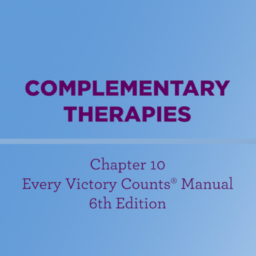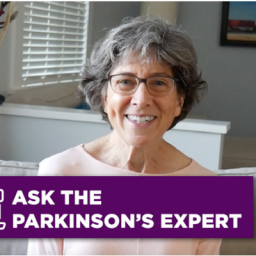This is part of a series of “sneak peek” pieces from the sixth edition of the Every Victory Counts® manual, which will be released this September.
Written by Amanda Craig, OTR/L, CBIS
An occupational therapist (OT) can talk for days about the assistance and support that occupational therapy can provide to people with Parkinson’s. My short answer to how an OT can help you live well with Parkinson’s? We can help with almost everything. All aspects of your life that you need or want to do. The end.
Now that you know that, here’s the longer answer: Occupational therapists recognize that all people need to be active and occupied to be satisfied. Occupational therapy helps people of all ages (beginning to the end of life) with their “occupations.” To an OT, “occupations” are any activities that occupy your body, mind, emotions, and time. That’s right; we’re not only focused on employment. Our list of occupations can include any aspect of life, from eating, showering, dressing, sleeping (yes, we consider sleeping an occupation), playing, working, volunteering, driving, parenting, pet-parenting, home care, and many more.
Occupational therapists break down tasks to determine why a person is experiencing decreased participation or efficiency within their activities. An OT investigates a person’s challenges so they can create a customized treatment plan. These skill deficits may include but are not limited to gross and fine motor skills, vision, hearing, pain, fatigue, thinking skills, emotional coping skills, and communication skills.
The goal of occupational therapy is to help you be as independent as possible for as long as possible. To meet that goal, an OT can help you maintain or strengthen your ability to care for yourself, care for your house, take care of your loved ones, and get around in the community.
So, with this in mind, let’s look at some ways an OT can help you live well with Parkinson’s at home. Why? Because much of our lives are spent in our homes. We eat, sleep, and cultivate passions there. We create art, food, and music there. We study and educate ourselves there. And, of course, we visit others and maintain relationships there.
Home needs to be a place that supports our goals and allows us to thrive.
To set yourself up for success at home, an OT can visit your residence and learn about how you live on a day-to-day basis. They may take measurements and ask you to perform some of your daily, routine tasks, like getting around in your bathroom, preparing food in your kitchen, getting in and out of your closet, and feeding your pet. Afterward, they will provide you with recommendations and potential resources, which might be specific to your needs or might be general accessibility recommendations. The OT should also let you know what home changes are essential to make right away and what can be made in the future as your Parkinson’s progresses.
Ultimately, OTs want to offer home solutions that will increase a person’s engagement in an activity. We want any modifications in the home to allow you to increase your overall participation. And we want to contribute to maintaining or improving your overall health and wellness.
Depending on your needs, goals, symptoms, and lifestyle, an OT may recommend modifications to your seating arrangements and furniture, kitchen organization, lighting, bathrooms, stairs, and walkways. Additions and improvements to your home such as grab bars, push-pull doorknobs, bed canes, touch-on lights and faucets, doorbell cameras, and improved lighting can make your home not only more comfortable but safer as well.
Whether you’re looking for an OT who specializes in this kind of home evaluation process or any of the countless other occupations of life, seek out an OT who can help you meet your specific needs and goals. An occupational therapist is an ideal partner to have on your Parkinson’s journey.
 About Amanda Craig
About Amanda Craig
Amanda Craig is a licensed occupational therapist and owner of Ada Therapy Services, PLLC in Boise, ID. Amanda provides individualized outpatient treatment for adults and adolescents experiencing functional “real life” deficits caused by neurological and chronic conditions. The therapists at Ada Therapy Services subscribe to the founding principle of occupational therapy: all people need to be active and occupied to be satisfied. Amanda completed her graduate degree in occupational therapy from Idaho State University and a bachelor’s degree in business from Philadelphia University/Thomas Jefferson University in her home state of Pennsylvania.
Get Our Home Safety Checklist
Making your home safe and comfortable is an important part of living well with Parkinson’s. That’s why we spent several months asking people with Parkinson’s, occupational therapists, physical therapists, and care partners what instrumental changes people with Parkinson’s can make to ensure their home is as safe and as comfortable as possible. We then put all of the information we gathered from those interviews together and created the Parkinson’s Home Safety Checklist especially for you. You can access the checklist here.
















